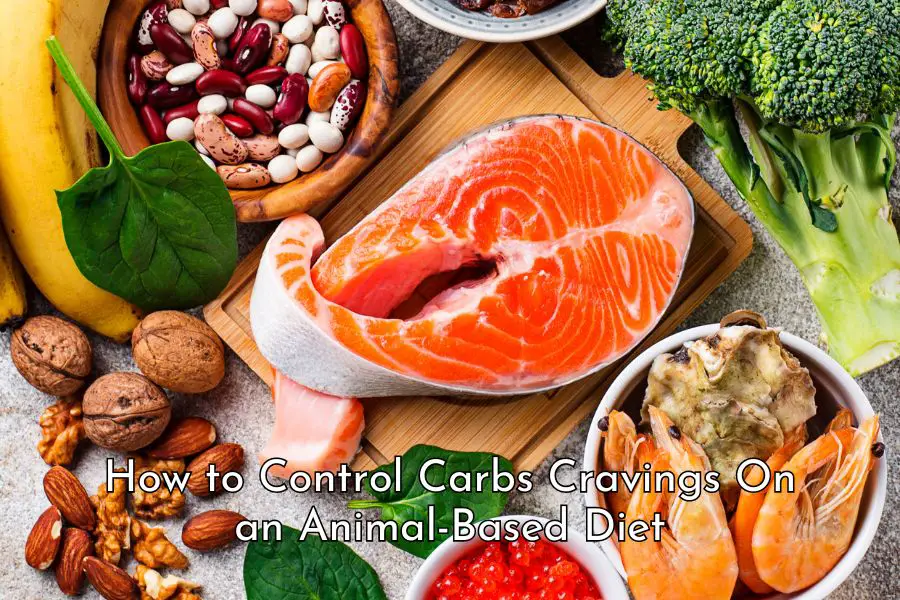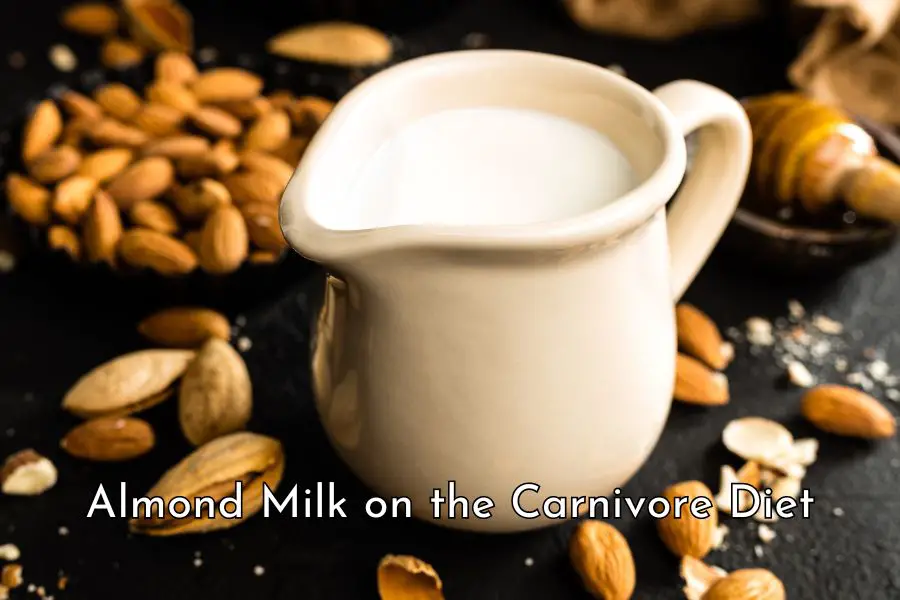It may seem hard to believe but a raw meat diet has recently become a new hype. Some people even claim that switching from cooked meat to raw meat has been a game changer for their health.
In this comprehensive post, I will explore the pros and cons of consuming raw meat versus cooked meat. Please note that I do not promote either a raw meat or cooked meat diet – it’s your personal decision. However, if you are interested in trying a raw meat diet, these pros and cons will help you evaluate the potential benefits and risks associated with this way of eating.
The Pros of Raw Meat on the Carnivore Diet
The pros of a raw meat diet include:
- Better nutrient retention,
- Better digestion,
- Avoidance of harmful chemicals formed during the cooking process,
- Saving time and money, and
- Potentially better health overall.
1. Better Nutrient Retention
Raw meat can contain a higher level of some nutrients than cooked meat because cooking results in loss of moisture and fats and, accordingly, nutrients contained therein.
Cooking invariably results in loss of moisture and fats and, as a result, loss of water-soluble vitamins like C and B vitamins; fat-soluble vitamins like vitamins A, D, E, and K; and water-soluble bioactive compounds such as taurine, carnosine, and creatine. In addition, loss of minerals like calcium, sodium, potassium, magnesium, and phosphorus and changes in fat composition can also occur. [1, 2, 3, 4]
Cooking techniques, temperature, time, and doneness also affect the extent of nutrition loss. For example, grilling or stewing over an extended period of time causes more nutrient loss than baking in foil or sous vide cooking (where food is placed in a sealed vacuum bag and cooked at a low temperature). [5, 6, 7]
2. Better digestion
Some people find that they digest raw meat better than cooked meat and there may be some scientific reasons for it.
Raw meat contains natural enzymes and cooking can destroy those enzymes and hinder your body’s digestion process.
When we eat raw food, the natural enzymes present in meat (as well as fruits, vegetables, and seeds) can aid our digestion via the self-digestion process called autolysis. As an example, when you leave a piece of meat alone, it will be digested by the enzymes within itself over time through autolysis.
When we eat cooked food, depending on the cooking temperature, time, and techniques, most if not all of the natural enzymes would have been destroyed. Hence, our body has to rely on only stomach acid and the digestive enzymes it produces to break down food. This puts a heavy burden on our digestive tract.
Alexander Ugolev, a Russian scientist, once conducted a well-known experiment with two dead frogs to show how important natural enzymes are. [8]
Ugolev placed two dead frogs, one cooked and one uncooked, into cups filled with a carnivore’s stomach acid. After a while, the uncooked frog was completely dissolved while the cooked frog remained largely intact with only minor surface change.
Imagine if this is what happens in our stomachs when we eat cooked meat. Our digestive system will just have to work harder to produce the expensive stomach acid and enzymes to help digest the food fully.
Based on the result of this experiment at least, raw meat appears to be better for digestion than cooked meat.
All carnivores in the wild eat this way: only raw and living food. Man is the only animal that cooks his food. No other animals cook or season their prey, they all thrive on live food.
3. Avoiding Potential Harmful Chemicals Due to Cooking
As there is no cooking involved, eating raw meat helps you avoid harmful chemicals that are formed during the cooking process.
Cooking, especially high-heat cooking methods like grilling, baking, and roasting leads to the formation of harmful chemicals such as heterocyclic amines (HCAs), polycyclic aromatic hydrocarbons (PAHs), and advanced glycation end products (AGEs). These chemicals have been found to increase the risk of cancer and contribute to increased oxidant stress and inflammation and are linked to a number of health problems. [9, 10]
4. Saving Time and Money
If you can live on raw meat only, you will save a lot of time as well as a bit of money too.
There is no cooking or cleaning of pots, pans, ovens, grills, and cooking utensils involved. Shopping is also a lot easier, you don’t need cooking oils, salt, herbs, or spices nor need to shop often. Just a few slabs of fresh meat will last you weeks.
5. Better Health
Raw meat offers better nutrient retention, potentially better digestion, and potentially better health overall.
In addition, eating raw meat also exposes us to pathogens in small doses which is a way of training our gut and immune system and making us stronger.
Human stomach acid is extremely high and is about a thousand times more acidic than that of chimpanzees. Given that our stomach acidity is similar to that of scavengers, generally, healthy adults are very well-equipped to handle raw meat. [11, 12]
Young children, the elderly, pregnant women, and those who have compromised immune systems or with serious underlying health issues are particularly vulnerable to even very small doses of pathogens exposed via food consumption or the living environment. [13]
The Cons of Raw Meat on the Carnivore Diet
The cons of eating raw meat include:
- Increased risk of food poisoning
- Lower bioavailability for some nutrients
- Some meat can’t be eaten raw
- Raw meat doesn’t taste as good as cooked meat; and
- Difficulty to stick to a raw meat diet.
1. Increased Risk of Food Poisoning
Perhaps the risk of foodborne illness is the biggest reason why health authorities recommend against consuming raw meat and even undercooked meat. And this is probably the top reason, apart from cultural taboos, that a raw meat diet is not common even among the radical small fraction of the population who are currently on the carnivore diet.
No doubt, there is a risk of food poisoning that may lead to severe illness and even death if you consume raw meat or undercooked meat that has been contaminated.
Because conventionally produced meat today is generally processed with the assumption that it would be cooked before consumption so hygienic standards are expected to be not as high as when it is intended for raw consumption.
Even if you can get raw meat that has been properly handled, it is not 100% guaranteed that the raw meat is safe because the animals may still be unknowingly infected with dangerous parasites or pathogens.
However, the overall risk of foodborne illness due to meat consumption (including raw, well-cooked or undercooked meat) is not particularly high compared to plant-based food.
In a study conducted by the CDC, beef, pork, chicken, turkey, and other meat combined accounted for 32% of all food-borne illnesses during the 1998-2012 period, whereas, at 47%, plant-sourced foods accounted for nearly half of them.

2. Some animal-based food has lower bioavailability than cooked food
There is an argument that cooking increases the bioavailability of some nutrients, however, this seems to be the case with fruits, vegetables, grains, and eggs, but not particularly with meat.
For example, cooking increases the antioxidant activity and bioaccessible lycopene content of tomatoes significantly. Similarly, cooking spinach can increase the bioavailability of some minerals and vitamins while cooking carrots increases beta-carotene absorption multi-folds. [14, 15, 16]
Apart from egg proteins which have been found to have a much higher digestibility when cooked than raw, I haven’t been able to find studies showing that cooking enhances the nutritional contents of animal-based food or their bioavailability. [17].
While some claim that cooking meat can result in an increase in certain minerals like iron and zinc, this is likely due to exposure to cooking utensils rather than cooking per se. Studies using oven and iron-free cooking techniques still detect iron, zinc, and copper loss. [18]
3. Some Meat Can’t Be Eaten Raw
Some odd meat cuts (e.g. beef tendons, beef tripe, lamb shanks, pig trotters, bones) are difficult if not impossible to eat raw. If you stick to a strictly raw meat diet, you will miss out on great sources of some nutrients like collagen, calcium, magnesium, and phosphorus.
4. Cooked meat tastes better than raw meat
Cooked meat generally tastes better than raw meat and makes it more enjoyable to eat.
When meat comes into contact with high heat (from above 285°F or 140°C), a chemical reaction between amino acids and reducing sugars (called the Maillard reaction) occurs.
As a result of the Maillard reaction, many different flavor and aroma compounds are formed and food colors are changed and we have more flavorful meat (e.g. umami aroma instead of blood-like taste) and appealing colors and textures (e.g. charred crusty steak instead of bloody or grey steak).
5. Difficult to stick to a raw meat diet
It is generally difficult to stick to a raw meat diet.
First of all, it’s not always easy to find a reliable source of meat. Maybe if you own a farm and cull your own animals or personally know a butcher and can order fresh meat that meets your hygiene standards, you can still do it. But it is near impossible for most of us who rely on grocery store meat.
It is also difficult when traveling or partaking in social events. You can’t order a raw steak at a restaurant, join a friend’s BBQ and eat a raw steak or suck a few raw eggs in front of everyone.
How to Make Raw Meat Safer
Cooked meat is definitely safer than raw meat. However, if you decide to try out the raw meat diet for whatever reason, the following tips can help make it safer.
- Buy meat from reputable sources if you can
- If you must buy meat from supermarkets, always check the use-by date and make sure the package is well-sealed with no leaked, bloated or swollen packaging
- Buy bulk when possible. A large chunk of meat has a smaller surface area for contamination compared to many small cuts
- If you buy meat from the butcher, once you get home, immediately put them in ziplock bags, squeeze the air out and store them in the fridge immediately
- Keep your fridge at a low temperature (at around 40°F (4°C) or colder)
- Avoid cross-contamination, store the meat in clean covered containers or sealed bags, and wash your hands well before and after handling the meat
- Freeze the meat after purchase (this may kill off some bacteria). The freezer temperature should be 0° F (-18° C). Only keep in the fridge enough meat for two to three days at a time
- Blanch meat by dipping it in rigorously boiling water for a short time. The outer layer of the meat will be cooked but the inside is still raw
- Wash chopping boards, kitchen bench, knives, and other utensils thoroughly and run them through the dishwasher if you can.
If you prefer cooked meat, try to opt for more gentle methods of cooking (sous vide or quick searing instead of grilling), limit the cooking time (blanching, quick searing instead of well-done), discard any burned meat, and drink the juice.
As mentioned above, some odd cuts of meat like beef tendons or pig trotters do need to be well cooked over a long period of time, but these are most likely to be your “sometimes” food. Most of the time you should aim to use quick and gentle cooking techniques.
Other posts you might be interested in:
What Are the Best Ways to Cook Meat on the Carnivore Diet?
Do You Need Magnesium Supplements on the Carnivore Diet?
What Is the Best Meat to Eat on the Carnivore Diet?
Best Sources of Vitamin C on the Carnivore Diet
Best Sources of Omega 3 on the Carnivore Diet
Is Carnivore Diet + Fruit & Honey a Good Idea?
What Do Hardcore Carnivores Eat in a Day?
Is Carnivore the Best Anti-Aging Diet Around?
Disclaimer: The information in this post is for reference purposes only and is not intended to constitute or replace professional medical advice. Please consult a qualified medical professional before making any changes to your diet or lifestyle. Please check out our disclaimer for more detail.





